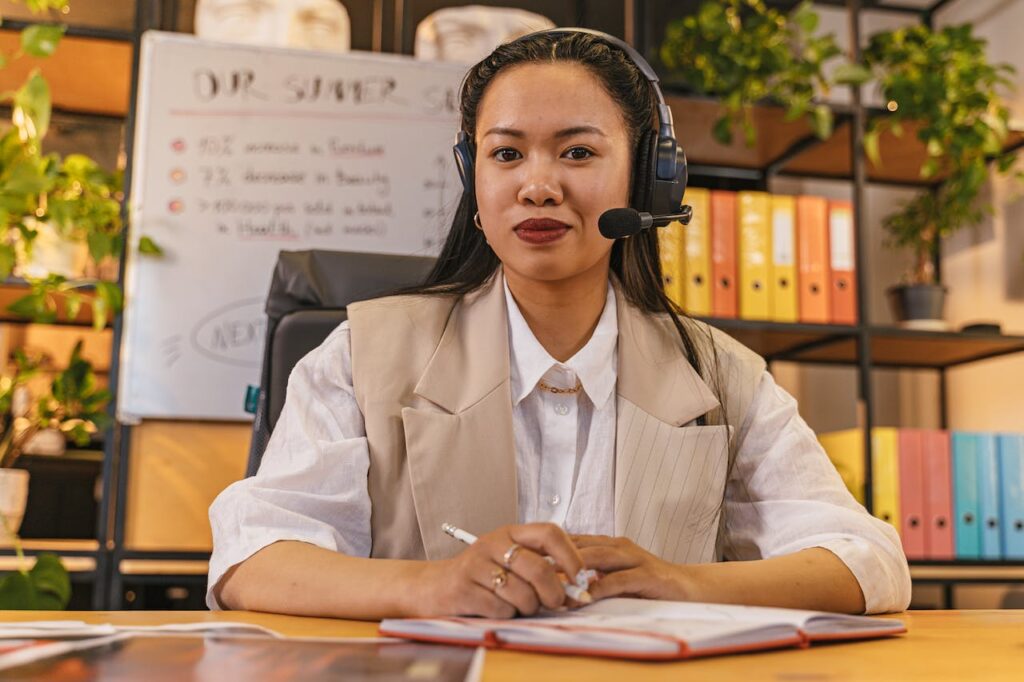When it comes to working, most people think it is black-or-white: You either report to the office or telecommute from home. In the wake of the pandemic, a third trend has emerged: work from hotel. With remote workers eager to travel after lockdowns, they now frequently combine a vacation with work.
This trend is changing hotel dynamics. Thursdays and Sundays, which were previously low points in hotel occupancy, are now much busier. Employees tend to book longer vacations, so that they can bookend their travel with work and spend the weekend in the middle with the usual relaxing and sight-seeing.
Employees who want to try out work from hotel must be prepared with the right tools. Without them, employees may be unable to effectively perform their duties, potentially raising questions about their ability to work from anywhere. They may also get frustrated and stressed out, which undermines the entire purpose of working from a hotel.
Here are the essential tools that you will need to maximize your work from hotel experience.
Hardware for work from hotel

Employees need more hardware than just their laptop when they choose to work from hotel.
Headset / microphone – Hotels may have distracting background noise, such as celebrating guests or ongoing construction, which may spell disaster for remote meetings. Workers should opt for a headset with a microphone to improve communication clarity. While more expensive, headsets equipped with noise-canceling ability may be worth the price tag.
External hard disk – External hard drives are most frequently used to back up data. These devices also have a relevant use case for work from hotel situations. When hotels have spotty WiFi, workers should still be able to access key files, so they can continue working uninterrupted, albeit offline. An external hard drive allows this ability.
USB hub – Most laptops have far fewer ports than desktops. When working on-the-go at a hotel, this lack of ports may limit productivity. Fortunately, a USB hub can connect to a laptop and provide the ports necessary for work. Workers may opt for a powered hub, so that all connected devices are powered to their maximum voltage.
Collaboration software

Employees must be ready to collaborate efficiently, even though they may be reporting from their hotel’s lounge or cafe.
Project management – One tool that can facilitate collaboration is Trello, which offers project management through a kanban-style interface. If their department has not already implemented a tool like Trello, employees should advocate for one, so they can better manage their workflow while on-the-go. Employees working from a hotel should also download their project management software on all devices. This availability ensures that employees don’t miss out on key deliverables while traveling.
Communication platform – Most workplaces will have an official communication platform, such as Slack or Microsoft Teams. To make the most out of these platforms, employees should enable push notifications, so that they don’t overlook important messages while vacationing. Employees should also consider integrating with other work software, such as their project management platform, so key alerts are further centralized to a single location.
Voice collaboration platform – It may be easy to get lost during a remote meeting when an employee is in a vacationing state of mind. An AI-powered voice collaboration platform, like Vocol.ai, can help. By using such a platform, you can transcribe online meetings, generate AI summaries and topic highlights, share the transcripts with your comments and even assign action items to your team members. These productivity-enhancing features help you to work smarter, not harder, while traveling.
Security software

Because employees are not reporting from a normal work environment, they must take extra precaution to be safe.
Malware scanner – Malware of all kinds can pose a significant threat to companies. For example, a senior developer at Ronin downloaded a fake job description that was actually a payload for malware. This phishing attack led to a US$600 million hack of his organization. Even if they don’t interact with suspicious sites or emails, employees working from hotels should be proactive with a malware scanner. These tools will identify any possible cybersecurity threats.
Anti-virus software – Enterprises are one of the most frequent targets for virus attacks, often because they are more lucrative. For example, ransomware attacks, which lock workstations or encrypt data in a given computer network, typically extort US$408,000 on average. Employees must protect their computer with strong anti-virus software that can mitigate the risk of attacks and remove any threats. The right anti-virus software can ensure the employee works as safely from a hotel room as he would from the company headquarters.
Virtual private network – Most people conflate a virtual private network with privacy: Consumers frequently use a VPN to illegally use software or consume content that is geo-restricted to a particular country or region. However, the main use case for VPNs is to provide a safe working environment for employees. When working from a hotel, employees should log into their designated corporate VPN. If their corporation does not have a designated VPN, employees may consider availing one for themselves, which they can use not only at hotels but other venues like coffeeshops and cafes.
Hotel buy-in

Although working while traveling is a consumer-driven trend, hotels must cater to the needs of these mobile workers. Overlooking this demographic means losing bookings to hotels that will cater to their unique working requirements.
Once hotels do buy into this idea, they face a gargantuan task: With so many possible amenities and features that they can consider providing, including everything from charging stations to coworking-style hubs, it is difficult to decide what to implement first. One of the lowest hanging fruits is a consumer-facing voice assistant, such as Aiello Voice Assistant (AVA).
With a device like AVA, travelers can be more productive working on-the-go. Instead of having to call the concierge or labor to the front desk, they can simply ask the in-room AVA for relevant information, such as when the business center opens or what the WiFi password is, and it will respond in the manner of popular voice assistants like Siri or Alexa. If the hotels that you’re regularly staying in do not have an AI voice assistant in the guest room, you should definitely prompt them about it (pardon the pun).

Travelers can even make requests through AVA that get funneled to the appropriate hotel staff. Whether these requests are work-related (e.g. “Can you book me a meeting room?”) or personal (e.g. “Can you book me a spa treatment?”), the result is the same: You save time, effort, and energy that you can now put back into both work and travel.
Working together, hotels and travelers can showcase the potential of telecommuting while vacationing: People can see more of the world, all while getting work done.


Here’s how hotels can accommodate (ahem!) this trend. https://www.hospitalitynet.org/opinion/4119224.html